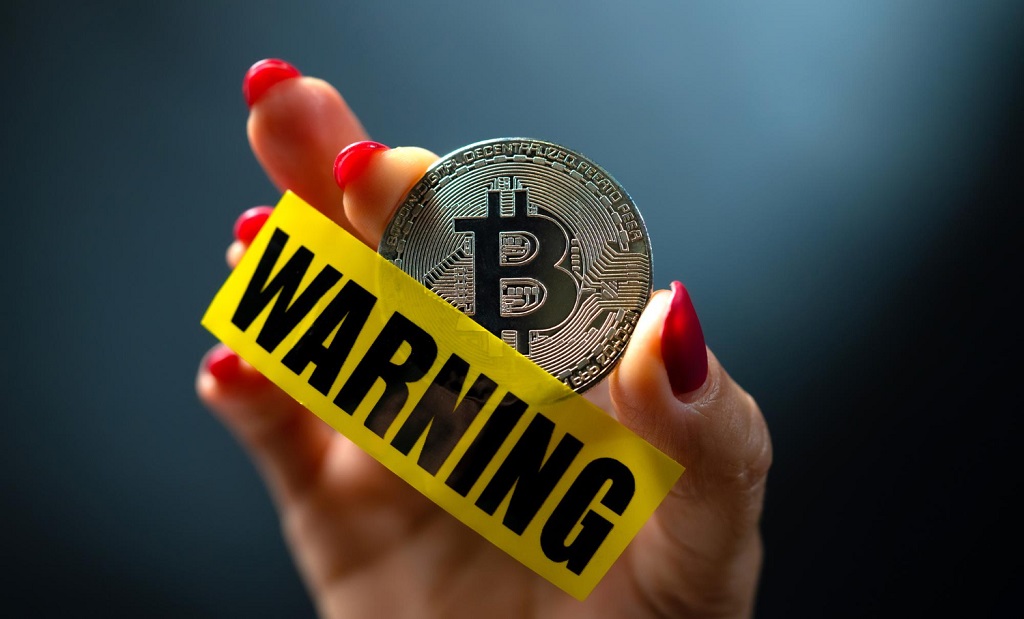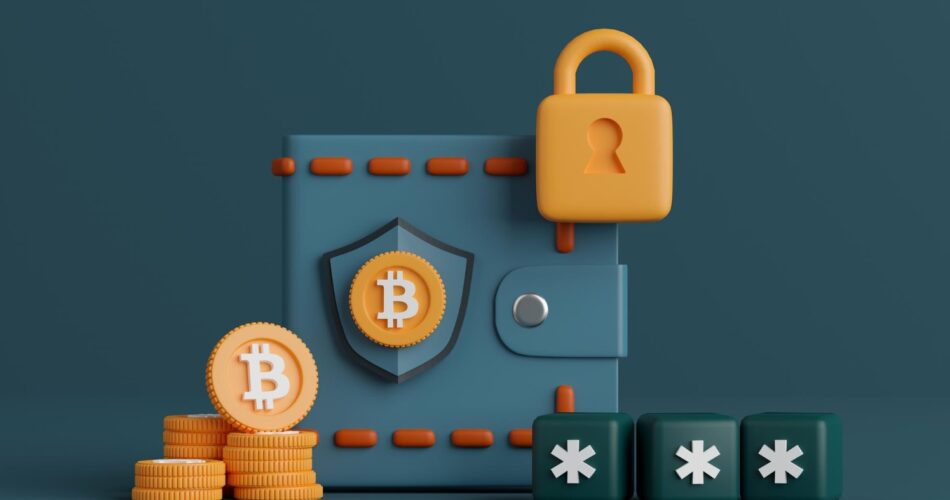Is Bitcoin safe? This question has been on the minds of many since the inception of the world’s first cryptocurrency. As Bitcoin continues to gain popularity, it’s crucial to understand its safety aspects, risks, and how to protect your investment. This article aims to provide a comprehensive guide on these topics.
Table of Contents
Understanding Bitcoin
Bitcoin, the first cryptocurrency, was introduced in 2009 by an anonymous entity known as Satoshi Nakamoto. It was designed to be a decentralized digital currency, free from government control.
How Bitcoin Works
Bitcoin operates on a technology called blockchain, a public ledger containing all transaction data from anyone who uses bitcoin. Transactions are added to “blocks” or the links of code that make up the chain, and each transaction must be recorded on a block.
The Role of Blockchain Technology in Bitcoin
Blockchain technology is the backbone of Bitcoin. It ensures transparency, as all transactions are public and traceable. It also ensures security through its decentralized nature and cryptographic protection.
The Safety of Bitcoin

| Aspect | Description | Safety Level |
|---|---|---|
| Cryptography | Bitcoin uses public-key cryptography to secure transactions. This involves a pair of keys: a public key for encryption and a private key for decryption. | High |
| Private and Public Keys | A private key is a secret number that allows bitcoins to be spent. A public key is derived from the private key and linked to the Bitcoin address. It’s crucial to keep your private key secure. | High (if private keys are securely managed) |
| Bitcoin Wallets | Bitcoin wallets are tools for storing and managing bitcoins. There are several types, each with its own level of security. | Varies (Hardware wallets are generally the safest) |
| Bitcoin Transactions | Bitcoin transactions involve the transfer of value between Bitcoin wallets. Each transaction is signed by the sender’s private key and is broadcasted to the network for validation. Once a transaction is confirmed, it is included in a block on the blockchain. | Medium (Depends on user behavior and wallet security) |
The safety of Bitcoin is a multifaceted topic that encompasses several key areas including cryptography, wallet security, and transaction safety. Let’s delve into each of these areas to understand how they contribute to the overall safety of Bitcoin.
Understanding Bitcoin Security
Cryptography and Bitcoin
Bitcoin’s security is fundamentally rooted in cryptography, a method of protecting information through the use of codes. Bitcoin uses a specific type of cryptography known as public-key cryptography, which involves the use of two keys: a public key, which is openly available and used for encryption, and a private key, which is kept secret by the user and used for decryption.
In the context of Bitcoin, these cryptographic keys are used to create digital signatures for transactions, which ensure that only the owner of the bitcoins (i.e., the one who holds the private key) can spend them. This cryptographic security measure makes it extremely difficult, if not impossible, for a malicious actor to alter or forge transactions on the Bitcoin network.
The Role of Private and Public Keys
In Bitcoin transactions, a private key is a secret number that allows bitcoins to be spent. Every Bitcoin wallet contains one or more private keys, which are saved in the wallet file. The private keys are mathematically related to all Bitcoin addresses generated for the wallet.
On the other hand, a public key is shared with others to receive transactions. It’s derived from the private key and linked to the Bitcoin address. It’s crucial to keep your private key secure because if someone else has access to it, they can spend your bitcoins.
Bitcoin Wallets and their safety
Different Types of Bitcoin Wallets
Bitcoin wallets are digital tools that allow users to securely store and manage their bitcoins. There are several types of Bitcoin wallets, each with its own level of security:
- Hardware Wallets: These are physical devices designed to securely store a user’s private keys offline, making them resistant to online threats such as viruses and hackers. Examples include Trezor and Ledger.
- Software Wallets: These are applications that can be installed on a computer or smartphone. They are generally secure, but their safety depends on the security of the device they’re installed on.
- Online Wallets: These are web-based wallets that can be accessed from any device with an internet connection. While they offer convenience, they are also vulnerable to online threats and depend on the security measures of the third-party service provider.
- Paper Wallets: These are physical printouts of a user’s public and private keys. They are safe from online threats but can be lost or damaged physically.
Safety Features of Each Type of Wallet
Each type of Bitcoin wallet has different safety features. For example, hardware wallets are immune to computer viruses and provide a high level of security because they store the user’s private keys offline. They also often require a PIN for access, adding an extra layer of security.
Software wallets, on the other hand, often have features like two-factor authentication and multi-signature transactions, which can enhance security. However, they are only as secure as the device they are installed on.
Bitcoin Transactions
How Bitcoin Transactions Work
Bitcoin transactions involve the transfer of value between Bitcoin wallets. Each transaction is signed by the sender’s private key and is broadcasted to the network for validation. Once a transaction is confirmed, it is included in a block on the blockchain.
Safety of Bitcoin Transactions
Bitcoin transactions are generally safe due to the use of private keys and the immutable nature of the blockchain. Once a transaction is confirmed and added to the blockchain, it cannot be reversed or altered. This prevents double-spending and fraud.
However, the safety of Bitcoin transactions also depends on user behavior. For instance, if a user sends bitcoins to the wrong address, the transaction cannot be reversed, and the bitcoins may be lost. Therefore, it’s crucial to double-check all transaction details before sending bitcoins.
Risks Associated with Bitcoin

While Bitcoin’s underlying technology offers robust security features, it’s not without its risks. These risks can be broadly categorized into market volatility, regulatory risks, technological risks, and the risk of losing access to Bitcoin wallets.
Bitcoin’s Volatility
One of the most well-known risks associated with Bitcoin is its price volatility. Bitcoin’s price can fluctuate wildly in a very short period, which can lead to significant financial losses for investors. This volatility is due to a variety of factors, including market speculation, regulatory news, technological advancements, and macroeconomic trends. While this volatility can also lead to high returns, it’s important for investors to understand and be prepared for the potential financial risks.
Regulatory Risks
As a decentralized digital currency, Bitcoin operates independently of a central bank or government. However, it’s still subject to regulation in many jurisdictions. These regulations can have a significant impact on the value of Bitcoin and its acceptance as a form of payment. Regulatory policies around Bitcoin can change rapidly and vary greatly by country, adding an element of uncertainty and risk for Bitcoin holders.
Technological Risks
While the Bitcoin network itself is secure, the broader ecosystem is not immune to technological risks. These can include software bugs in the Bitcoin protocol, successful hacking attempts, and the potential future development of quantum computing that could theoretically break Bitcoin’s cryptographic security. While these risks are relatively low and many precautions are taken to prevent them, they still exist.
Risks of Losing Access to Bitcoin Wallets
If a Bitcoin holder loses access to their wallet (for example, they forget their password or their hardware wallet is damaged), they can lose their Bitcoin permanently. Unlike traditional banking systems, there is no way to recover lost Bitcoin. This underscores the importance of securely managing and backing up your Bitcoin wallet.
How to Safeguard Your Bitcoin
Safeguarding your Bitcoin involves a combination of best practices for securing your Bitcoin wallet, ensuring safe transactions, and staying updated on Bitcoin’s regulatory environment.
Best Practices for Securing Your Bitcoin Wallet
Securing your Bitcoin wallet is crucial to safeguarding your Bitcoin. Here are some best practices:
Not to store your Bitcoin on exchanges for an extended period
Exchanges are online platforms where you can buy, sell, and hold cryptocurrencies. However, they are also prime targets for hackers. While many exchanges have robust security measures in place, they are not immune to breaches. Over the years, several high-profile cryptocurrency exchanges have been hacked, resulting in the loss of millions of dollars worth of cryptocurrencies.
Use a Hardware Wallet
Hardware wallets are considered the safest type of Bitcoin wallet because they store your private keys offline, making them immune to online threats such as viruses and hackers.
Keep Your Software Up-to-Date
If you’re using a software wallet, make sure it’s always updated to the latest version. Updates often include security enhancements that can protect your wallet from new threats.
Use Strong, Unique Passwords
Your wallet’s password is like the key to your safe. Make sure it’s strong (a mix of letters, numbers, and symbols) and unique (not used for any other accounts).
Enable Two-Factor Authentication
If your wallet supports it, enable two-factor authentication. This adds an extra layer of security by requiring a second form of verification in addition to your password.
Regularly Backup Your Wallet
Regular backups of your wallet can help you recover your Bitcoin in case of hardware failure, theft, or human error.
Tips for Safe Bitcoin Transactions
Ensuring safe Bitcoin transactions is another important aspect of safeguarding your Bitcoin. Here are some tips:
Double-Check Transaction Details
Always double-check the recipient’s address before sending a transaction. Bitcoin transactions cannot be reversed, so a mistake can result in permanent loss of your bitcoins.
Be Wary of Unknown Addresses
Be cautious when sending bitcoins to addresses you do not recognize or trust. It’s best to only transact with trusted parties.
How to Stay Updated on Bitcoin’s Regulatory Environment
Staying updated on Bitcoin’s regulatory environment can help you anticipate and respond to changes that could impact the safety of your Bitcoin. Here are some ways to stay informed:
Follow Reliable Crypto News Sources
Websites, blogs like ours, and social media accounts dedicated to cryptocurrency news can provide timely updates on regulatory changes.
Monitor Official Communications
Keep an eye on official communications from regulatory bodies in your country.
By following these best practices, you can significantly enhance the safety of your Bitcoin and protect your investment.
Case Studies

Case studies provide real-world examples of Bitcoin use, both successful and unsuccessful. They serve as valuable lessons for Bitcoin users and potential investors.
Success Stories of Bitcoin Use
The Bitcoin Pizza Purchase
One of the most famous Bitcoin transactions is the purchase of two pizzas for 10,000 bitcoins in 2010 by a man named Laszlo Hanyecz. At the time, the bitcoins were worth about $41. Today, those bitcoins would be worth millions of dollars. This story illustrates the potential for significant returns on Bitcoin investments.
Early Bitcoin Investors
Many early Bitcoin investors have seen significant returns on their investments. For example, the Winklevoss twins, who invested $11 million in Bitcoin in 2013, became Bitcoin billionaires when the price of Bitcoin soared in 2017. These success stories highlight the potential for high returns in the Bitcoin market, but it’s important to remember that these returns are not guaranteed and investing in Bitcoin carries risk.
Instances of Bitcoin Theft or Loss
Mt. Gox Hack
In 2014, Mt. Gox, which was handling about 70% of all Bitcoin transactions at the time, filed for bankruptcy after losing approximately 740,000 bitcoins (around 6% of all bitcoins in existence at the time) in a hack. This incident serves as a stark reminder of the risks associated with storing bitcoins on an exchange.
Lost Bitcoins
It’s estimated that around 20% of all existing bitcoins are in lost or otherwise stranded wallets, according to a report by the Wall Street Journal. This includes bitcoins lost by people who forgot their private keys or passed away without leaving their keys to anyone. These stories underscore the importance of securely managing and backing up your Bitcoin wallet.
These case studies highlight both the potential rewards and risks associated with Bitcoin. They serve as a reminder that while Bitcoin can offer high returns, it’s also subject to significant risks. Therefore, it’s important to understand these risks and take appropriate measures to manage them.
Comparing Bitcoin Safety to Other Assets
When comparing the safety of Bitcoin to other assets, it’s important to consider both traditional assets like fiat currencies and other digital assets like alternative cryptocurrencies.
Safety of Bitcoin vs Traditional Currencies
Traditional currencies are backed by governments and are subject to the regulations and monetary policies of those governments. This backing provides a level of security and stability that Bitcoin does not inherently have as a decentralized currency. However, traditional currencies are also vulnerable to risks such as inflation, economic instability, and political interference.
On the other hand, Bitcoin, being decentralized, is not subject to direct government control. This means it’s not vulnerable to inflation in the same way as traditional currencies. However, it also means it lacks the kind of institutional backing that traditional currencies have.
Safety of Bitcoin vs Other Cryptocurrencies
When compared to other cryptocurrencies, Bitcoin is often considered safer due to its larger network, higher liquidity, and more widespread adoption. Bitcoin’s blockchain is the largest and most secure, with more computational power dedicated to its maintenance than any other. This makes it extremely resistant to attacks, including the infamous 51% attack.
A 51% attack refers to a potential attack on a blockchain by a group of miners controlling more than 50% of the network’s mining hash rate or computing power. With such control, the attackers could reverse transactions and double-spend coins. However, due to Bitcoin’s immense network size and computational difficulty, the cost of launching a 51% attack on Bitcoin’s network is prohibitively high, making it highly unlikely.
In contrast, smaller cryptocurrencies with less network power and lower hash rates are more vulnerable to such attacks. Therefore, in terms of network security, Bitcoin is generally considered safer than most other cryptocurrencies.
Conclusion
The question “Is Bitcoin safe?” is multifaceted and the answer largely depends on the context. From a technological standpoint, Bitcoin is remarkably secure. Its underlying blockchain technology, the use of cryptographic processes, and the decentralized nature of the network all contribute to its robust security framework.
Bitcoin’s blockchain is the largest and most secure, making it highly resistant to potential attacks, including the infamous 51% attack. This, coupled with the fact that Bitcoin has the most widespread adoption among cryptocurrencies, often makes it a safer choice compared to other digital assets.
However, while the Bitcoin protocol itself is secure, individual user practices can significantly impact the safety of one’s Bitcoin assets. The security of Bitcoin wallets, the management of private keys, and the conduct of transactions all depend on the user. Therefore, education and responsible practices are crucial for ensuring the safety of one’s Bitcoin.
Furthermore, Bitcoin, like any other asset, is subject to market risks. Its price volatility, regulatory changes, and technological advancements all contribute to the risk profile of Bitcoin. Therefore, potential investors should thoroughly understand these risks and consider their own risk tolerance levels before investing in Bitcoin.
In conclusion, Bitcoin’s safety is a complex interplay of technological security, user practices, and market dynamics. While Bitcoin offers robust security features, the safety of one’s Bitcoin ultimately depends on individual user behavior and external market factors. As with any investment, due diligence and responsible management are key to safeguarding one’s assets.
FAQs
Is Bitcoin a safe investment?
Bitcoin, like any investment, carries risk. It’s important to do your research and understand the market before investing.
Can Bitcoin be hacked?
While the Bitcoin network itself is highly secure, individual wallets or exchanges can be vulnerable if not properly secured.
How can I keep my Bitcoin safe?
Use a secure wallet, keep your private keys private, and follow best practices for transactions.
How safe is Bitcoin mining?
Bitcoin mining is generally safe as it involves solving complex mathematical problems to validate transactions and add them to the blockchain. However, it requires a significant investment in hardware and electricity. The main risks associated with Bitcoin mining are the volatility of Bitcoin’s price and the increasing difficulty of mining, which can affect profitability.
How safe is Bitcoin trading?
Bitcoin trading is as safe as the platform you use and the security measures you take. It’s important to use a reputable trading platform that employs robust security measures. Traders should also use strong passwords, enable two-factor authentication, and avoid sharing sensitive information. However, trading involves financial risks due to the volatility of Bitcoin’s price.
How safe is Bitcoin Loophole?
Bitcoin Loophole is a trading software that claims to make profits by buying and selling Bitcoin at the right time. However, it’s important to approach such platforms with caution. While they may promise high returns, they can also be associated with high risks, and there have been reports of scams associated with these types of automated trading platforms. Always do thorough research and consider seeking advice from a financial advisor.
How many Bitcoin confirmations is safe?
The number of confirmations needed to ensure a Bitcoin transaction is final depends on the size of the transaction. For small transactions, even one confirmation (which takes approximately 10 minutes) may be enough. For larger transactions, waiting for six confirmations (approximately one hour) is generally considered safe. This is because the more confirmations a transaction has, the harder it is for a malicious actor to reverse the transaction.


